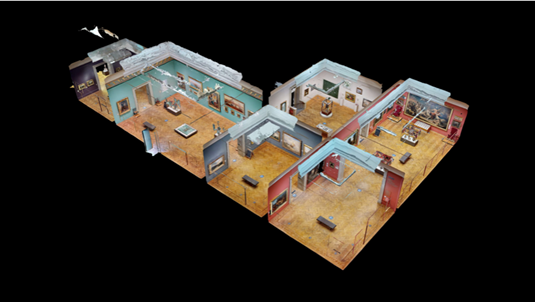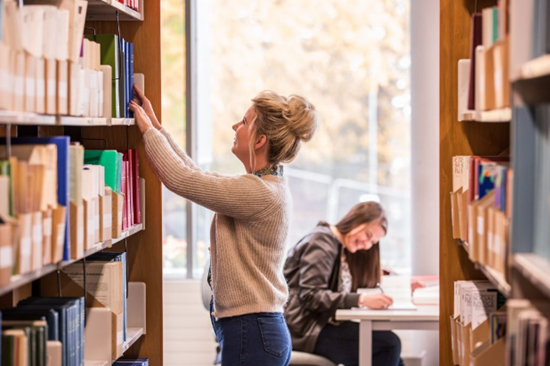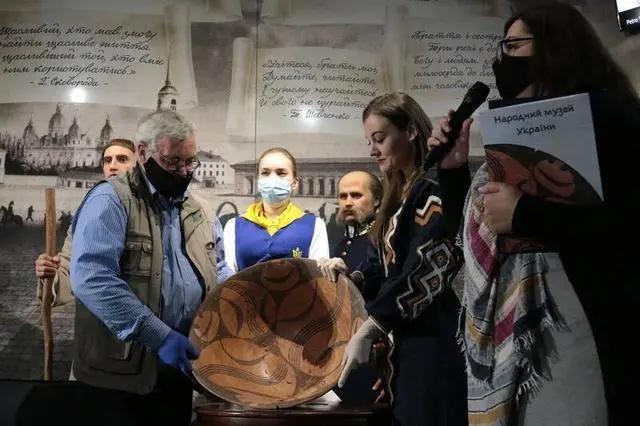Offline courses are difficult to carry out. How can British museology courses adapt to the epidemic situation?
- MPR
- Time:2020-12-15 16:23
While novel coronavirus pneumonia has faced various difficulties in some universities in Britain, the number of masters of Arts and Heritage Studies at University of Ulster has not been affected. Elizabeth Crooke, who heads the course, said a total of 17 students from the UK and Ireland were enrolled this year, about 20 per cent higher than usual.

3D camera scanners at the Chester Museum of fine arts for the master of Arts in Museum and Heritage Studies at the University of Manchester
Other similar courses have this situation, that is, the number of students has remained stable or increased. Although the current continuing restrictions have made people re recognize the benefits of face-to-face interaction, they have also stimulated new learning methods that have a permanent impact on the teaching method of the course, and this learning method is very creative.
Ulster University's courses are mainly taught on its Belfast campus, but the students currently studying the course are not living in student dormitories. Ulster university has decided that all teaching for most of the spring courses will be online, at least until the end of January, the first semester.
The development trend is accelerating
Currently, the course is based on pre recorded video lectures, written resources and webinars, with reading and learning tasks (a recent task is that students need to find various topics from outdoor heritage traces, and then hold thematic seminars). Another important task is to discuss on the platform online, where students can discuss the lecture content, share views and upload pictures.
Whether it's borrowing books or submitting written tasks, the epidemic has accelerated the long-running trend of digital learning. The University of Ulster has been offering museum practice and management part-time postgraduate distance learning courses for 14 years. The approach adopted is based on past experience, and the number of students in this major has also increased this year. According to kruck, online education has certain advantages: lectures are recorded in advance, which means that students can play back the contents of lectures, and online discussion platforms can allow students more time for critical reflection.
Creating a video to explain the plan and a clear understanding of applicants' expectations will help students "be 100% prepared" for the course in the current situation, she said. "We have frankly stated that there will be no offline teaching this semester."
Kostas Avanti Thys, President of the Institute for cultural practice at the University of Manchester, which offers a master of Arts Program in Museum and Museum Studies and heritage studies, said: "the Institute has greatly changed the way we teach. The first semester of the 2020-2021 academic year may also be the whole school year. The school will mainly conduct online teaching, and if conditions permit, there will also be some offline courses. We have designed course modules that are taught only online or in face-to-face settings such as seminars, museum visits or workshops. "
The Institute has increased the use of software to promote interactive online learning. The software includes pre recorded lectures where students and lecturers can add notes, online seminars, a virtual collaborative bulletin board and an online whiteboard. The aim is to provide students with a "homogeneous learning experience" by consistently using these technologies.

The number of Museology courses at Ulster university is 20% higher than usual
Virtual visit
The Institute also uses 3D cameras to scan and record the interior environment of some local museums, so students can visit the exhibitions they usually expect to experience in person as part of their learning program. Novel coronavirus pneumonia is a new concept, just like other online tools, but the trend of physical interaction and online interaction has changed. Avanti Thys said: "before the outbreak of new crown pneumonia, people may say that online visits are only a supplement to physical visits. Now it's probably reversed. "
According to the UK Ministry of education guidelines, there is a need to block university campuses to open offline courses, but the education department will also review this restriction regularly. Awantitis said that although some students applied for offline courses before the outbreak, the first semester will be mainly online courses, and the school will keep close contact with all applicants. Once the offline courses can be opened in the school, everyone will be informed in time.
The city of Manchester has entered a state of three levels of blockade, part of the campus of Manchester University will remain open, but only online teaching can be selected. However, the number of applicants has not decreased. The number of applicants for art museums and Museology courses has increased by about 25% to 55%, a record high. Some of the applicants do not live in Manchester.
The number of people studying for a master of Arts Degree in museums and art galleries at the University of St Andrews has remained stable, with more applicants this year than in the same period in previous years, according to Agnes Bos, director of the Department of Museology at the University. At the beginning of this academic year, schools and cities were blocked by the epidemic, so all courses in the school were transferred to online teaching, but now the dual teaching mode is used, that is, the combination of online teaching and small-scale face-to-face teaching mode. The face-to-face teaching mode is open to students who can participate.
"The epidemic has prompted us to be more creative in teaching than before," says boss. The use of new online learning tools has improved students' technical skills, and online meetings have given the course the opportunity to invite international speakers.
But for some international students, the current situation has caused many difficulties. According to kruck, Ulster University museology used to have one or two international students, but this year none. In the 2020-2021 academic year, there are 9 international students in Museology at St. Andrews University, which is almost the same as in previous years. However, there are no Asian students this year, and in previous years, as many as five Asian students can be enrolled. "Affected by the epidemic, all Asian students enrolled in Museology this year have been postponed," Bosch said At present, there are about 20% of international students in Museology of Manchester University.
practical experience
For those who can learn, the blockade caused by the epidemic will affect their ability to acquire practical experience, which is an important part of many courses. At the University of St Andrews, students usually choose a museum or historical site as a personal research project during the academic year. This year, all students have established projects, but some students can only complete some or all of them online. At Ulster University, many students choose to volunteer during their studies, and now the job also needs to be reconsidered. At present, there are fewer opportunities to serve as museum on-site volunteers, but some institutions are exploring the possibility of online volunteers.
Museums and historic sites are unlikely to be visited by teams, and social opportunities are reduced. Group or face-to-face teaching still seems to be the best way for learners to share "their common interests, that is, art, museums and heritage," Bosch said. Her recent experience has proved that face-to-face teaching is crucial: "how can we hold a seminar on collection disposal without hands-on operation?"
The challenges of the current situation mean that faculty and staff should be very careful, contact students regularly and recommend them to the school's support services if necessary. Although so far this year's students have been unable to meet in real life, Kreuk hopes that they will have a chance to meet later. "We've done our best in a bad situation," she says. "The learning atmosphere is still there, the academic content is still there, and I think the valuable experience is still there. I believe the progress made in the last few weeks will make us want to see each other even more. "
These necessary adjustments may change the teaching methods in the long run. Mr. awantidis said his M.A. program may incorporate more online teaching elements in the future, while retaining the benefits of face-to-face interaction. "We need to wait and see what happens this year, and I think it's an extremely dynamic process, and students and teachers need to work together to find the most effective way," he added
2020-11-26
Editor: Pumpkin
Recommended Content
-

U.S. epidemic rebounds, museum opens and closes
2020-12-15 16:08 -

Zurich International Football Museum organizes an exhibition in memory of Maradona
2020-12-15 16:12 -

"The oldest smiling face" in the world at the National Museum of Ukraine
2020-12-15 16:14 -

British Museum Association 2020 annual meeting: exploring the future of Museums
2020-12-15 16:28
News
-
Announcement of the final evaluation results of the first China Exhibition Art and exhibition technology innovation competition
-
"The oldest smiling face" in the world at the National Museum of Ukraine
-
Handling | There are more options for IP development
-
Handling | development of cultural and Museum IP: building an effective connection with the audience based on people
-
Carrying, cultural and Museum IP helps cultural relics "live"
-
The platform construction project of Digital Museum of China's lost overseas Artworks (not displayed) will be launched soon
-
Scientific and technological innovation promotes cultural confidence, and the 2020 collaborative platform Conference on the industrialization and application of cultural relics protection equipment was held
-
Machine learning predicts interaction time between museum visitors and exhibits
-
From offline to online, how can digital technology reshape museums?
-
Cultural and natural heritage day | intangible cultural heritage "in the clouds" and "show" in the studio

